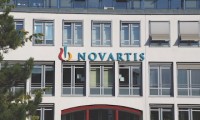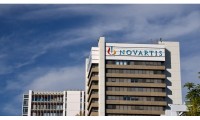-
Novartis acquires Chinook for $3.2bn to boost kidney disease pipeline
- Source: drugdu
- 114
- August 16, 2023
-
Novartis shares promising phase 3 results for BTK inhibitor in chronic hives
- Source: drugdu
- 116
- August 12, 2023
-
Novartis Scores Phase III Chronic Hives Wins as Sanofi Challenges
- Source: drugdu
- 213
- August 11, 2023
-
Novartis acquires DTx Pharma in deal worth up to $1bn
- Source: drugdu
- 137
- July 22, 2023
-
Novartis Plans Appeal to Ward Off Entresto Generics
- Source: drugdu
- 258
- July 12, 2023
-
Novartis Pledges to Appeal After Delaware Court Nixes Patent on Big-Selling Entresto
- Source: drugdu
- 134
- July 12, 2023
-
Samsung Biologics, After Expanding Pfizer Collab, Inks Novartis Production Deal Worth $391M
- Source: drugdu
- 136
- July 12, 2023
-
Generics to Novartis’ leukemia drug Tasigna to reach poor countries under 4 MPP licenses
- Source: drugdu
- 193
- June 28, 2023
-
Novartis to acquire Chinook Therapeutics for approximately $3.5bn
- Source: drugdu
- 119
- June 16, 2023
-
Novartis to acquire Chinook Therapeutics for approximately $3.5bn
- Source: drugdu
- 108
- June 14, 2023
your submission has already been received.
OK
Subscribe
Please enter a valid Email address!
Submit
The most relevant industry news & insight will be sent to you every two weeks.













